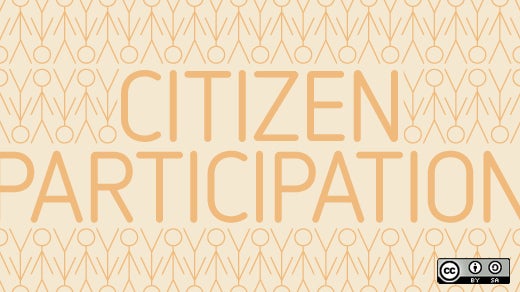What is civic hacking?
Seventy people gathered together one sunny Oakland afternoon to volunteer and improve their city. There were no rakes or yard tools normally seen at volunteer-day events though. No paint brushes, no trash bags, no canned soup bins. These seventy people were laden with laptops and were volunteering to improve the city’s website.
This group of engaged citizens were building Oakland Answers, a new easy way to get answers for the most common questions asked on the Oakland City website. From finding out how to pay parking tickets, to checking what jobs the City is hiring for, the new website is citizen-focused and community built.
The day long event was called a "writeathon" and the majority of the folks in the room were not web developers but long time Oakland residents who came to write answers. Technologists were there too though, setting up servers and forking the open source code for the site. These web developers, answer writers, and City staff were all taking part in the growing new movement of civic hacking.
Civic hacking is people working together quickly and creatively to help improve government.—Jake Levitas
Here are a few more examples of popular open source civic hacking projects:
- OneBusAway (on GitHub)
- City budget visualizations (on GitHub)
- 311 Service Tracker (on GitHub)
- Flu Shot Finder (on GitHub)
- StreetMix (on GitHub)
- CityVoice (on GitHub)
Open source civic hacking
Open source software is fundamental to civic hacking. Passionate volunteers write code and invent services that improve their own neighborhoods, but do so in a way that can be repeated in other communities around the world. Being able to easily share code without restriction is what allows for civic technology to scale.
For example, a few years ago in Boston there were severe snow storms that buried the fire hydrants. The same snow was downing powerlines and sparking fires. Some civic hackers saw this problem and created Adopt-a-hydrant (on GitHub), a way for neighbors to volunteer to shovel out the hydrants on their block. The following summer, the same code was forked and redeployed in Honolulu, not for snow but for tsunami sirens. Adopta has since been redeployed dozens of times and is being constantly improved by coders across the country.
Getting started
A great first project is to include your city in an existing service. Take Click that 'hood (on GitHub) for example. It’s a fun game that helps teach about a city’s neighborhoods. What's great about it is that it has clear instructions for adding your own city to the game. These instructions include using open source tools, collaborating on GitHub, and finding open data—all necessary skills for getting started in civic hacking.
Finding open data
The civic hacking movement is dependent on being able to easily find data about governments and the places they govern. If transit data, like bus schedules and train station locations, aren’t available than we couldn’t make any useful apps about transit. Luckily, many cities understand the importance of making their data available and have open data portals now. Data.gov has a list of many of the government data portals around the country and world. These portals gather all the available datasets that a city has and puts them all online in one place. The best data portals have that data in a machine readible format, so that it can be easily included in apps. Check your city’s website to find if a data portal exists. If not, then working with your city to get one setup is a great civic hacking project to start with.
Open source data portals:
Community
It’s important to remember that civic hacking includes both community and technology. All aspiring civic hackers need to join with others to solve our civic problems together. Check out the Code for America Brigade to find a local volunteer group or start your own. The best part of joining up with other civic hackers is finding out how they’ve achieved successes in their own cities. The Brigade is one of the best resources for discovering the latest open source tools and projects to work on. Also, working with city staff and civic leaders who are part of the Brigade is vital so that the civic technology apps created by civic hackers solve real societal problems. Many different skills and many different perspectives are needed to work on problems that effect many different people. Finally, to get really immersed in the civic hacking movement, consider applying for the Code for America Fellowship program.
Happy hacking!
View the complete collection of Beginners in Open Source Week articles.







6 Comments